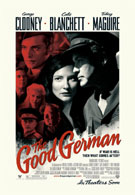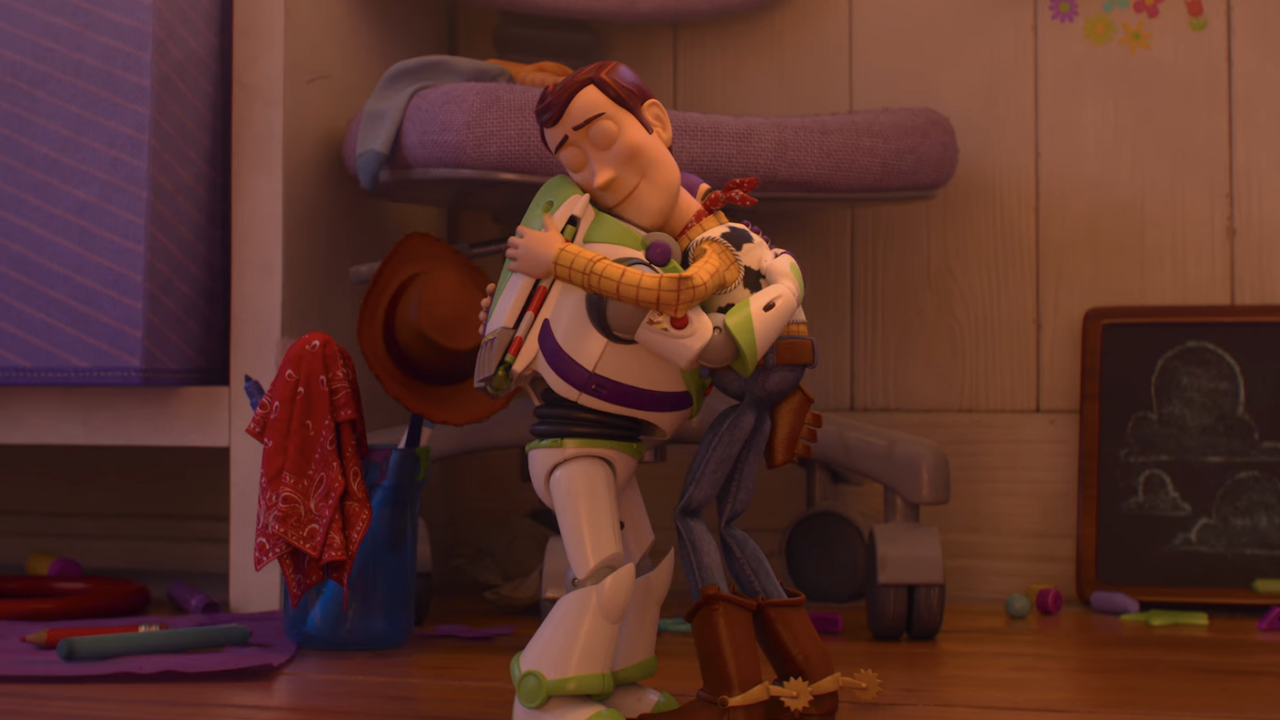Usually when we call a movie a period piece, it just means a lot of actors playing dress up. But Steven Soderbergh's The Good German takes things one step further. It's not just set in 1945, it's shot like it was filmed in 1945. The movie looks, feels, and sounds like a piece of post World War II film noir. Soderbergh has rolled back the clock on making movies and obsesses over precisely duplicating what a movie from that era should look like, flaws and all.
The result is a film that feels authentic in a way few others about the era have managed to do. Like it or not, for those of us who didn't live it our perception of that era comes from the movies and pictures we've seen of it. By incorporating all of that into the look of his movie, Soderbergh flips the switch inside your head that makes you think “oh yeah, I'm actually looking at 1945”. If Stalin had walked around the corner and given George Clooney a high five, I wouldn't have been the least bit surprised.
Yet though The Good German has all the particulars of a movie shot in 1945, it has the complexity and moral ambiguity of a modern work. George Clooney plays a journalist named Jacob Geismer who walks into the middle of Berlin two months after the conquering of Germany in World War II. The Americans and Russians are meeting to decide how they'll divide up the country, and Berlin is a hive of danger and intrigue as former allies who know they're soon to be enemies scramble to guarantee themselves an edge in what they know will be the next war.
Jacob is there to cover the Potsdam peace conference, but instead ends up embroiled in a murder investigation that leads him straight into a maelstrom of post-war backstabbing between major powers. The driver assigned to him is dating his ex-girlfriend Lena, an impossible coincidence which clues him in on the fact that things are not exactly as they seem. But for Jacob what's happening is simple. A man has been killed and he refuses to let it be covered up. Otherwise, what the hell were they fighting this war for? At the center of it all is Lena and her deceased, Nazi husband. She calls Jacob a bloodhound, and he is. Soderbegh's movie follows him as he digs deeper into the darkness only hinted at by the movies of the era he's aping with vintage camera lenses and a piped out of an orchestra pit musical score.
The Good German is wonderfully bleak, and Soderbergh does a great job of getting into the feel of bombed out Berlin. But while the gimmicks used to get that feeling work, they're also going to make it nearly impossible for mainstream audiences to accept the movie. People just don't have the patience needed to appreciate the old time artistry on display here. It doesn't help that the story Soderbergh is telling with it is so complex that it's likely to lose most moviegoers. He tells it using a baton passing technique, which means that the movie keeps shifting perspectives between characters. That only makes an already complex mystery movie even more confusing, and keeping everything straight may prove daunting.
Your Daily Blend of Entertainment News


